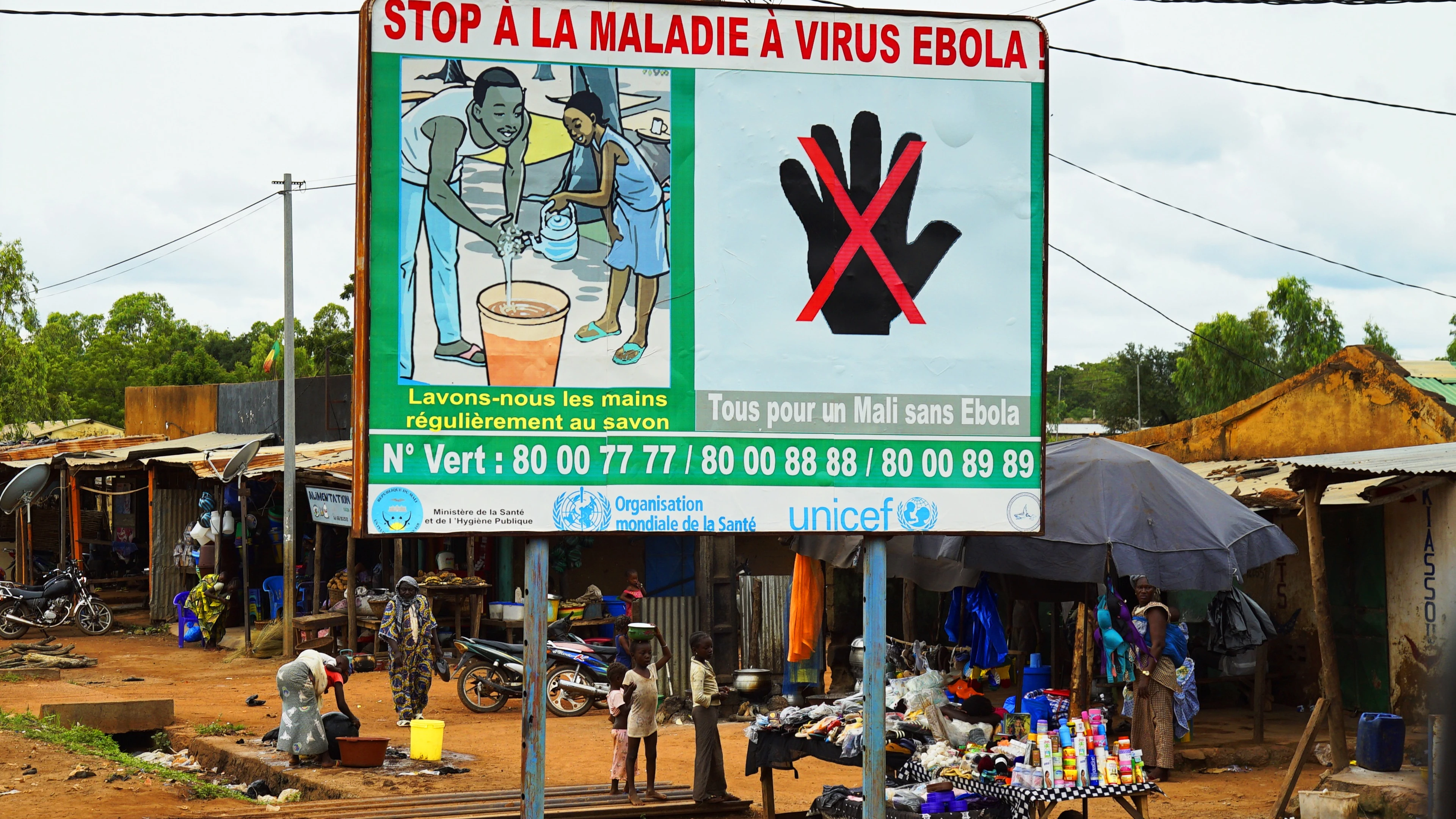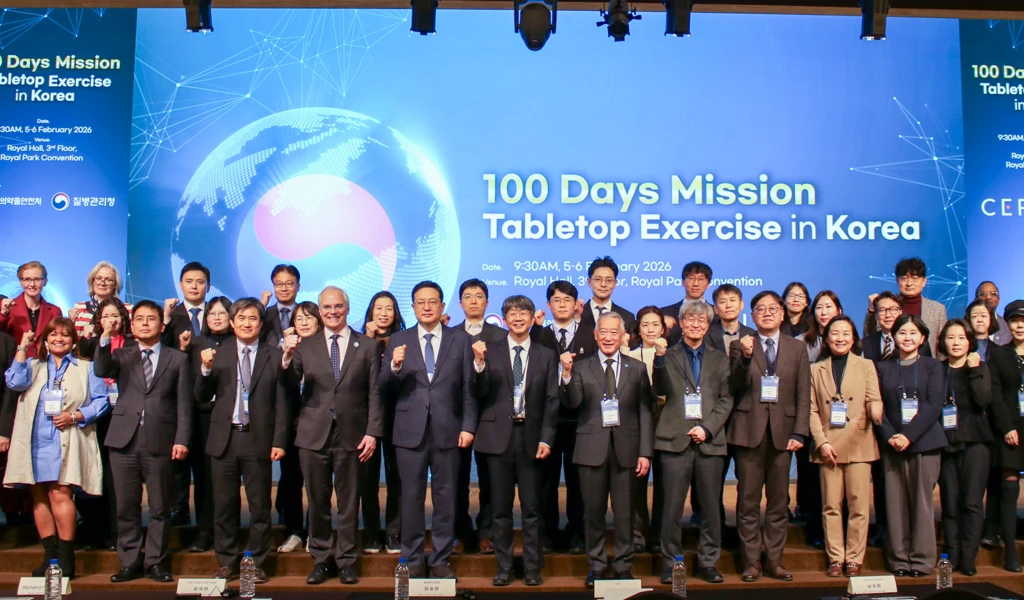Pioneering research to develop all-in-one vaccine against some of the world’s most deadly diseases

19 June 2025, Oslo/Copenhagen— Scientists at Denmark’s Adaptvac will lead the development of a new vaccine that could provide all-in-one protection against multiple deadly viruses including Ebolavirus Zaire, Sudan Ebolavirus and Marburg, all of which cause frequent unpredictable outbreaks in regions of Africa, with significant health and societal impacts and fatality rates of up to 90 percent.
Backed by $12.4 million of funding from CEPI and the European Union’s Horizon Europe programme, a global consortium led by AdaptVac aims to design and test a new vaccine that could offer broad protection against several filoviruses. Such a vaccine could be used to protect high risk populations, such as health workers, in areas where filovirus outbreaks are most prevalent – primarily in Central and East Africa.
Dr Richard Hatchett, CEO of CEPI, said: “Filoviruses are amongst the world’s most deadly viruses. They have proven potential to cause catastrophic epidemics, and they are causing outbreaks with increasing frequency. An all-in-one filovirus vaccine could be a game-changer, protecting those most at risk from these pernicious viral threats and making the world a safer place when faced with a future filovirus Disease X.”
Wian De Jongh, CEO of AdaptVac, said: “We are excited to work with CEPI and use our cVLP platform to accelerate preparedness efforts focused on filoviruses. This project builds on the significant support by the EU and Danish government for AdaptVac’s COVID-19 vaccine, as well as our ongoing Nipah virus vaccine development program. Together with our collaborators and CEPI, we aim to develop a range of effective and durable vaccines against known viral threats to help prevent future epidemics and pandemics.”
The European Commission’s Laurent Muschel, Deputy Head of HERA, and Irene Norstedt, Director, DG Research and Innovation said: “One of our EU health emergency preparedness priorities is to address filoviruses, like Marburg and Ebola, through accelerating R&I, and developing safe and effective vaccines. We are proud to support this exciting new innovation, which could be transformative in protecting against such threats, and reinforce preparedness against one of the most deadly viruses we know.”
Researchers at the Institute for Drug Discovery at Leipzig will use state-of-the-art AI technology to design a range of immunogens – the substance in a vaccine that provokes an immune response – that have the potential to protect against multiple filoviruses. These immunogens will be added to AdaptVac’s innovative Virus-Like-Particle vaccine platform to create several different vaccine constructs which will be tested in preclinical studies. The most promising vaccine candidate will progress into Phase 1/2 clinical trials in Gabon and the Netherlands to evaluate the vaccine’s safety and immunogenicity in humans, generating crucial data to provide proof-of-concept for the notion of broadly protective filovirus vaccines.
While there are two licensed vaccines which protect against Ebolavirus Zaire, currently no approved vaccines exist for Sudan Ebolavirus, Marburg or Bundibugyo. A single vaccine capable of combating all of these viral hemorrhagic fevers could offer a cost-effective solution for proactively immunizing those who are most likely to be infected by one or more of the viruses.
The project will also generate vital data and scientific knowledge about filovirus vaccines that will help to advance the 100 Days Mission, a goal spearheaded by CEPI and embraced by G7 and G20 nations, which aims to develop new vaccines in as little as 100 days from viral identification to contain new viruses with epidemic and pandemic potential in their tracks. Armed with this knowledge, researchers could potentially respond much more rapidly when faced with a so-called ‘Disease X’ – an as-yet-unidentified filovirus that could spill over from animal populations into humans in the future and cause an epidemic or pandemic. It could even help scientists in their quest to develop the ‘holy grail’ of filovirus vaccines: a single shot that provides broad protection against the entire filovirus family, including those we don’t yet know about.
Committing to equitable access
CEPI, Adaptvac and the consortium partners are committed to enabling equitable access to the outputs of this project, in line with CEPI’s Equitable Access Policy. The partnership agreement includes specific obligations related to affordable pricing and supply volumes for public health needs and project results, including related data, will be published open access for the benefit of the global scientific community. Adaptvac’s Virus-Like-Particle vaccine platform is favourable for use in low- and middle-income countries as it does not require complex frozen storage that can impact access to doses in low-resource settings.
- ENDS -
Notes to Editors
The global consortium includes the following partners:
Centre de Recherches Médicales de Lambaréné (CERMEL), Gabon
Copenhagen University, Denmark
Friedrich-Loeffler-Institut, Germany
Leipzig University, Institute for Drug Discovery, Germany
National Microbiology Laboratory, Public Health Agency of Canada
Radboud University Medical Center, The Netherlands
Wageningen University & Research, Department of Plant Sciences, The Netherlands
And out-sourced partner: Dyadic, USA
About CEPI
CEPI was launched in 2017 as an innovative partnership between public, private, philanthropic and civil organisations. Its mission is to accelerate the development of vaccines and other biologic countermeasures against epidemic and pandemic threats so they can be accessible to all people in need. CEPI has supported the development of more than 50 vaccine candidates or platform technologies against multiple known high-risk pathogens or a future Disease X. Central to CEPI’s pandemic-beating five-year plan for 2022-2026 is the ‘100 Days Mission’ to compress the time taken to develop safe, effective, globally accessible vaccines against new threats to just 100 days.
About Adaptvac
AdaptVac ApS was founded in 2017 and today owned by ExpreS2ion Biotechnologies (34%) and NextGen Vaccines (66%), the latter owned by the inventors of the proprietary and clinical Phase III-validated viral capsid Virus-like virus particle (cVLP) platform technology spun out from the University of Copenhagen. The Company aims to accelerate the development of highly efficient therapeutic and prophylactic vaccines within high value segments of oncology, infectious diseases and immunological disorders. Please visit: www.AdaptVac.com
About Horizon Europe
Horizon Europe — #HorizonEU — is the European Union's flagship Research and Innovation programme, part of the EU-long-term Multiannual Financial Framework (MFF) with a budget of EUR 95,5bn to spend over a seven-year period (2021-2027). Under Horizon Europe, health research is supported with the aim to find new ways to keep people healthy, prevent diseases, develop better diagnostics and more effective therapies, use personalised medicine approaches to improve healthcare and wellbeing, and take up innovative health technologies, such as digital ones.
- Media contacts -
CEPI
Email: [email protected]
Telephone: +44 7387 055214
Adaptvac
E-mail: [email protected]
Telephone: +45 26394649


.webp)